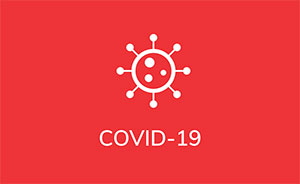Research pertaining to when CLL meets COVID-19 is only just beginning. There is no doubt that studies will rapidly accelerate over the next year and are sure to include the CLL patient’s response to vaccines.
Dr. Lindsey Roeker of Memorial Sloan Kettering (MSK) in NYC moves the field forward with this research published in the Journal of Leukemia complimenting her ASH 2020 abstract: Worldwide Examination of Patients with CLL Hospitalized for COVID-19 that looked at clinical outcomes early in the pandemic.
The focus of this study was the CLL patient’s immune response to COVID-19, which is data that were not reported in her ASH 2020 abstract.
Dr. Roeker’s team looked at 30 consecutive patients at MSK with CLL who tested positive for SARS-CoV-2 RNA, either in the setting of symptomatic COVID-19 or through screening upon entry to the medical system.
Twenty-one of the 30 patients were tested for anti-SARS-CoV-2 antibodies. The four patients who died due to COVID-19 and/or its complications were not tested, nor was testing done on five other patients.
Takeaways:
- Hospital admission rate was 63%
- Severe COVID-19 was found in 50% of the patients
- Case fatality rate was 13%, which is much lower than data seen earlier in the pandemic
- Two thirds of CLL patients (14 out of 21) formed antibodies (anti-SARS-CoV-2 IgG) after the acute phase of the infection
- For comparison, 98-100% of immunocompetent patients form antibodies after the acute phase
- Low immunoglobulin levels that are commonly seen in CLL were associated with being less likely to develop anti-SARS-CoV-2 IgG
- Receiving CLL-directed therapy (BTKi’s such as ibrutinib or acalabrutinib) was not significantly associated with antibody development, but there was a trend towards less of an immune response
- In severe COVID-19, 78% had positive anti-SARS-CoV-2 IgG, while 58% with non-severe COVID-19 had anti-SARS-CoV-2 IgG (this difference was not statistically significant)
Conclusions:
This research was purposed to look at antibody formation after COVID-19 infection in CLL patients. Although the numbers are small, it is encouraging to see a decreased mortality rate by more than a third compared to that reported in previous research. While the mortality rate is still too high, it is better than the 30-35% we have become accustomed to seeing.
The good news is that most of CLL patients do seem to form antibodies, but 1/3 do not. Additionally, there were no data from 9 of the 30 patients in the study, including the 4 who died. It would be very telling to know whether or not these nine patients mounted an immune response. More research is needed.
It is necessary at this point to assume the CLL patient response to any SARS-CoV-2 vaccine will be less predictable compared to the general population. There are no specific data pertaining to this yet, which will change with appropriate and necessary research.
The T cell response (cellular immunity) to the COVID-19 infection, as well as vaccines, is very important and needs to be carefully studied.
There is a great deal of work ahead, but Dr. Roeker has taken a big first step in helping lay important groundwork.
Here is the link to this research: Anti-SARS-CoV-2 Antibody Response in Patients with Chronic Lymphocytic Leukemia.
Stay strong.
We are all in this together.
Brian Koffman MDCM (retired), MS Ed
Co-Founder, Executive VP and Chief Medical Officer
CLL Society, Inc.



